This six-step model is designed to help you make career decisions not only as you begin your career search but also throughout your lifelong career path.
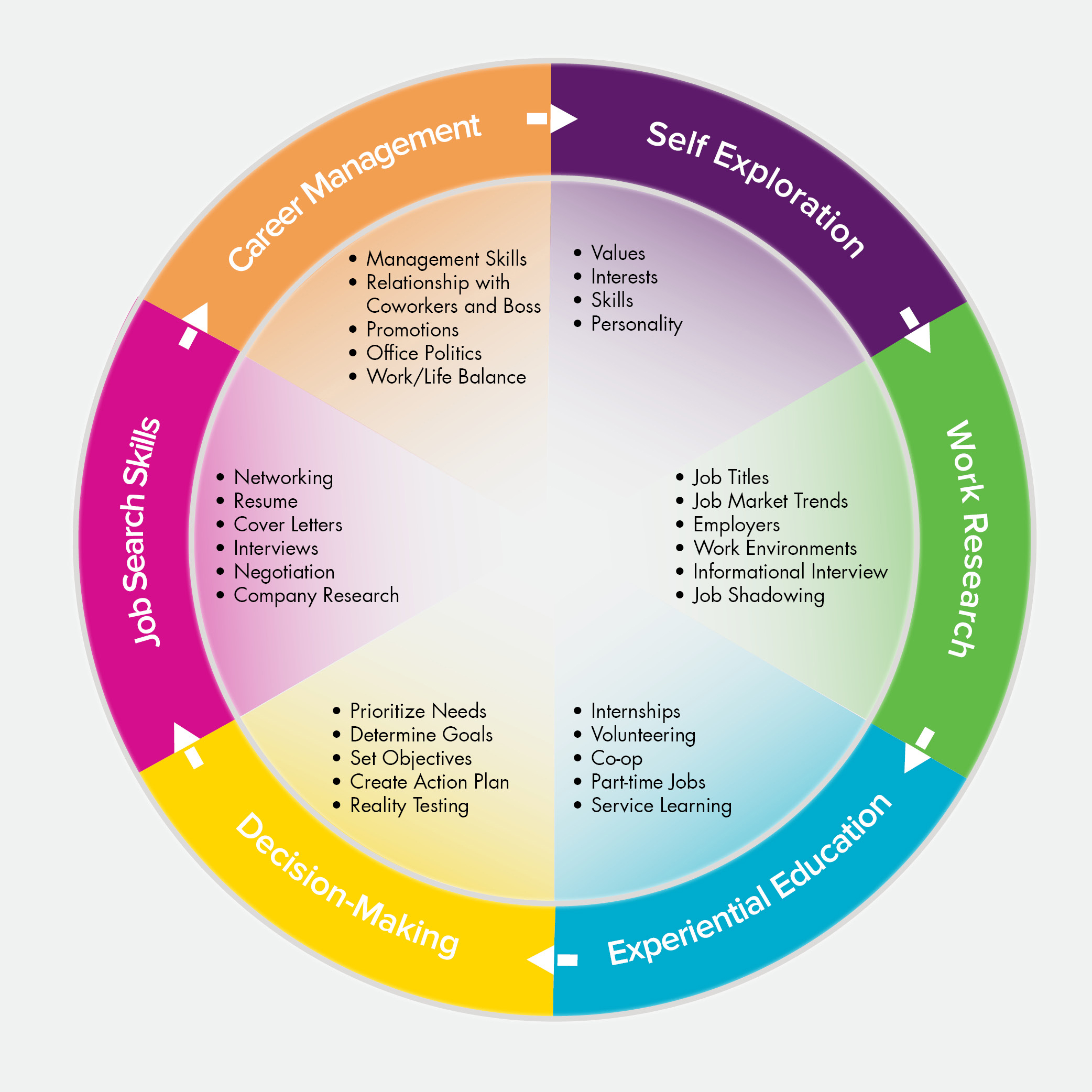
Self Exploration
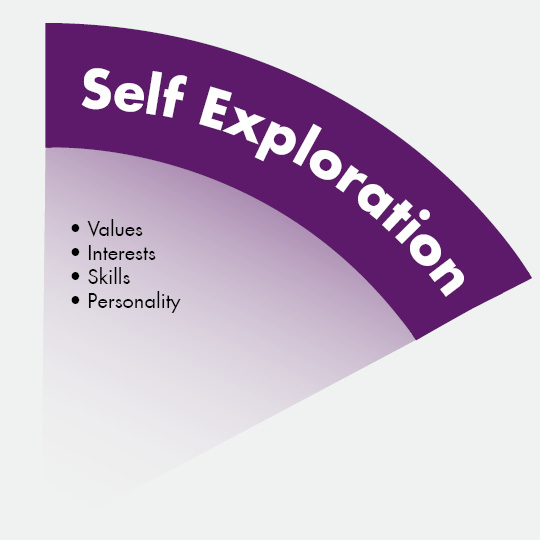 The first step in the Career Planning model is to examine who you are and what you like to do. With assessments you will learn to identify professions that may be satisfying to you. Assessments do not tell you what you should do or should be.
The first step in the Career Planning model is to examine who you are and what you like to do. With assessments you will learn to identify professions that may be satisfying to you. Assessments do not tell you what you should do or should be.
Get Started
- Find an internship with Handshake
- Visit California CareerZone to explore potential careers.
- Visit O*NET to consider or plan career options and more.
- Meet with an ICC advisor.
- Attend an ICC workshop.
- Undergraduate and graduate students can also take career courses to learn how to make informed career decisions
Work Research
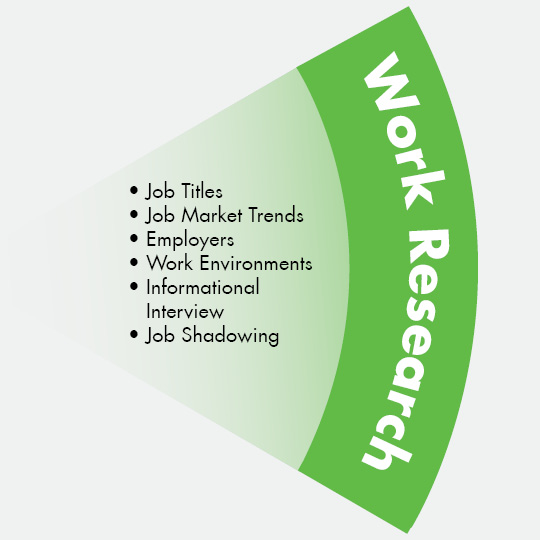 The second step in Career Planning model is to examine the world you want to work in and to find a career that best meets your needs. We call this "Researching the World of Work".
The second step in Career Planning model is to examine the world you want to work in and to find a career that best meets your needs. We call this "Researching the World of Work".
Get Started
- Visit the U.S. Bureau of Labor Statistics for job titles, education requirements and salary ranges.
- Conduct Informational Interview where you ask professionals working in the field you are interested in about their job, education requirements, day-to-day tasks, work environment and learn what they like and maybe even dislike about their job.
- Try job shadowing and gain practical knowledge about what it takes to work in your field of interest.
Experiential Education
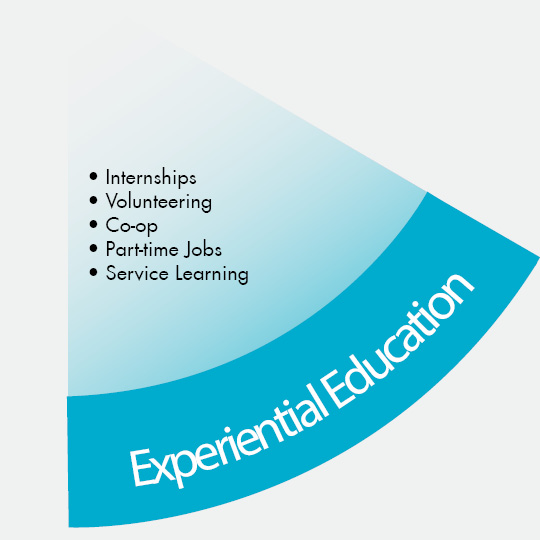 The third step in the Career Planning model focuses on "learning through experience" also known as Experiential Education and includes internships, volunteering or service learning (service learning is a combination of serving and learning that benefits the volunteer and the community). Experiential Education helps you learn outside of the classroom and in the working world.
The third step in the Career Planning model focuses on "learning through experience" also known as Experiential Education and includes internships, volunteering or service learning (service learning is a combination of serving and learning that benefits the volunteer and the community). Experiential Education helps you learn outside of the classroom and in the working world.
Get Started
- Find an internship with Handshake.
- Develop an internship on your own or with the help of an ICC advisor.
- Build skills outside of the classroom by volunteering or completing a service learning project.
- Work part-time.
- Study abroad or find an international internship.
Decision Making
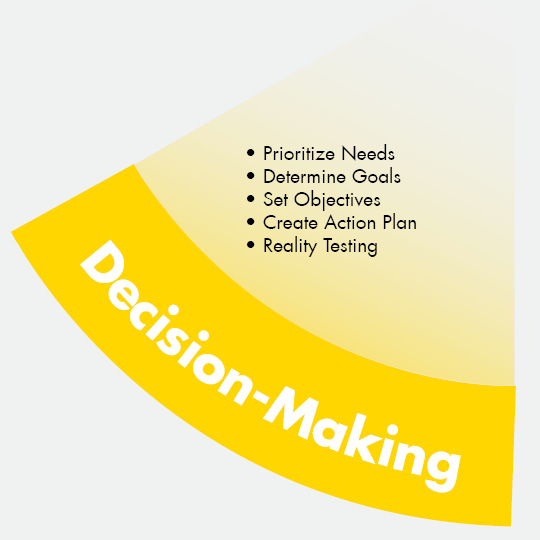 After researching the World of Work (step two) and potentially gaining work experience as an intern or volunteer (step three), you’re ready for the fourth step in our Career Planning model, Decision Making.
After researching the World of Work (step two) and potentially gaining work experience as an intern or volunteer (step three), you’re ready for the fourth step in our Career Planning model, Decision Making.
Get Started
- Make an appointment with an ICC advisor to discuss your plans, the research you've done on options, internships opportunities you are interested in exploring and to share your thoughts and plans.
- Identify where you are now and where you want to be.
- Think about what you've learned so far in the process and what you liked or disliked about your experience.
- Evaluate your internship or volunteer experiences and reflect on what happened.
- Look at the pros and cons.
- Develop an action plan with tangible next steps identified.
Job Search Skills
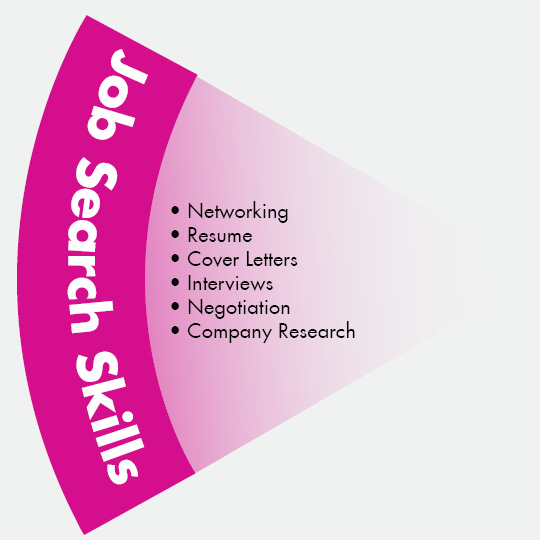 Now that you have narrowed your focus and set your goals, it's time for step five of our Career Planning model: Job Search. But where do you begin and how do you start?
Now that you have narrowed your focus and set your goals, it's time for step five of our Career Planning model: Job Search. But where do you begin and how do you start?
Get Started
- Visit the ICC to meet with an advisor.
- Attend a workshop.
- Write a tailored cover letter and resume. Have them reviewed.
- Attend an internship and career fair to find a job and network with employers.
- Interview with employers looking for UC Davis students.
- Use Handshake to look for and apply for jobs, submit resumes and cover letters and to schedule interviews with employers.
Career Management
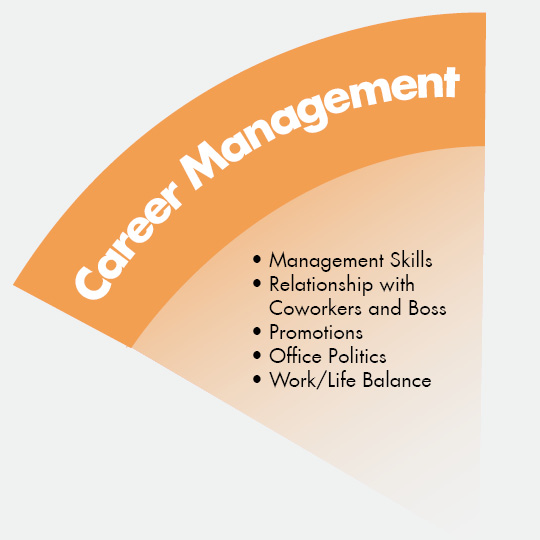 Congratulations, you are ready to start your new job! Actively planning and managing your career will help keep you on track and lead you in the direction you want to go. It is a life long process.
Congratulations, you are ready to start your new job! Actively planning and managing your career will help keep you on track and lead you in the direction you want to go. It is a life long process.
Some tips for successful on the-job performance:
- Be realistic about your expectations, both of the job and yourself.
- Remember, promotions are earned through diligence, initiative and hard work.
- Be conscientious and punctual with your work schedule.
- Act and talk professionally. Respect your co-workers.
- Maintain a high ethical standard in all you say and do!
- Be a team player. Recognize others’ accomplishments as well as your own.
- Establish mentor relationship with senior staff or someone in a related position who can support you.
- Participate in committees and professional associations, if appropriate.
Above all, learn, develop new skills and enjoy your experience!